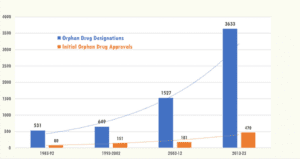Today's High Inflation Will Increase Retirement Health Care Costs…Forever – Money

Many companies featured on Money advertise with us. Opinions are our own, but compensation and
in-depth research determine where and how companies may appear. Learn more about how we make money.
Record inflation isn’t just hitting Americans at the supermarket and at the pump. It’s also driving up health care costs, and the current spike will have a lasting effect on retirement medical expenses even after inflation returns to normal levels, a new study finds.
The study by HealthView Services projects that health care inflation will remain elevated at an annual 11.9% over the next two years. This means that a healthy 65-year-old couple will have to spend an additional $85,917 on lifetime medical expenses over what they would if inflation had stayed at the historic norm. For a 55-year-old couple, those figures nearly double to $160,712. And for a 45-year-old couple, the extra lifetime costs jump to $259,808, according to HeathView Services, a Danvers, Mass.-based company that provides health care cost data to financial advisors.
The report predicts that in about two years, inflation will return to historical averages. But today’s short-term inflation will have a long-term impact. HealthView Services CEO Ron Mastrogiovanni says that historically, health inflation has risen at 1.5 to 2 times higher than the consumer price index (CPI), which is currently at 7.9% year-over-year. So even if general inflation eventually falls back to average levels, health care inflation will continue to rise on prices that increased sharply during this inflationary spike, compounding lifetime medical expenditures.
“Let’s say gas prices are $5,” explains Mastrogiovanni. “Now, in a month, they could be $4.50. But in health care, if it goes up to five bucks, it doesn’t fall back to $4.50. It keeps going up, but at a slower rate. That’s the problem with healthcare prices.”
Social Security won’t cut it
Many Americans were pleased to hear that the Social Security Administration increased the Cost of Living Adjustment (COLA) to 5.9% in 2022. That’s the highest it has been since 1982, and it meant that retirees saw a healthy a bump in their Social Security benefits this year. However, the raise didn’t go that far — as the report notes, Medicare Part B premiums alone increased by nearly 15% from 2021 to 2022, a record high.
You can expect that a good portion of your Social Security benefits will get eaten up by health care costs. In fact, the study found a 65-year-old couple retiring and starting Medicare coverage today will need 71% of their lifetime Social Security benefits just to cover their medical expenses — that’s 9% more than if inflation were to remain at historic levels for the next two years. Researchers project that health expenditures will exceed projected Social Security income by 56% for those retiring in 20 years. (The report also notes other factors besides inflation that are driving up health care prices, including hospital consolidations, the COVID-19 pandemic and rising salaries for nurses and other medical professionals.)
Ads by Money. We may be compensated if you click this ad.Ad
Getting Long-Term Care Insurance allows you to know that you’re protected as you age.
Long-term Care Insurance is beneficial for seniors and individuals with physical or cognitive disabilities. Purchasing a long-term care insurance policy ahead of time can help you save on the cost of premiums.
GET STARTED
The time to plan is now
HealthView Services notes that a healthy 45-year-old couple earning a 6% annual rate of return will need to invest an additional $27,000 today to make up their projected $215,000 in additional health expenses, assuming health care inflation remains at 1.5 times the current CPI of 7.9% for the next two years and then returns to historical averages. That additional amount will bring the current 45-year-old’s lifetime medical expenses to a whopping $1,803,526.
This is all the more reason to start saving aggressively now. Regardless of your age, it can help to start saving in an individual retirement account (IRA) or 401(k), especially if your employer offers a match.
If you have a high-deductible health plan, you may be able to pair it with a health savings account (HSA). This offers triple tax benefits: You can contribute money to the account tax free. Investment earnings grow tax free and you can make tax-free withdrawals to fund qualified health expenses.
Like 401(k) plans, many HSAs allow you to invest in a range of securities like stocks and mutual funds. If eligible, you can open an account through various banks or investment management companies. Your employer may also offer one. In addition, your employer may offer a flexible spending account (FSA). This is a tax-advantaged account that helps you pay for health care costs like deductibles and copayments.
HealthView Services calculated its health care cost projections by utilizing actuarial and government data, as well as data from 530 million medical claims, and by making inflation projections for Medicare premiums, supplemental insurance and out-of-pocket spending.
More from Money:
Inflation Watch: Prices Are Spiking Everywhere, but Here’s Where Cost Increases Are the Worst
How to Save Money on Gas
11 Best Dental Insurance Plans



